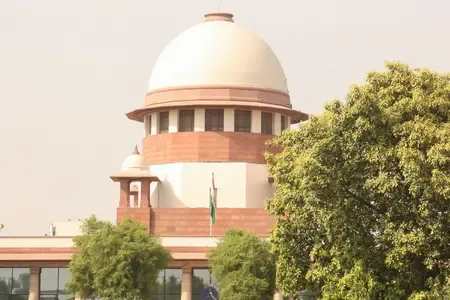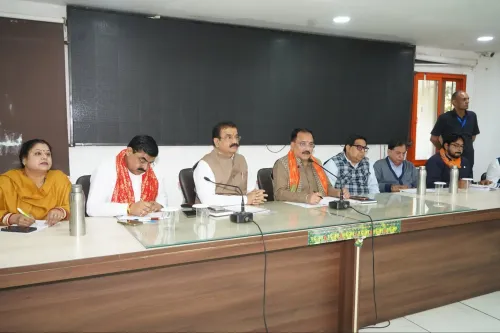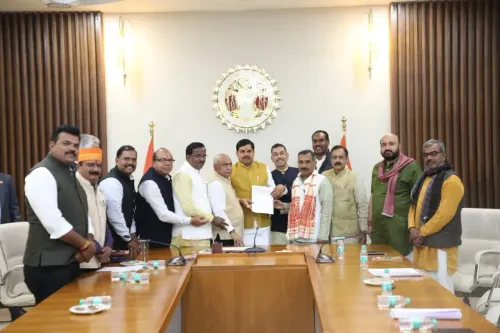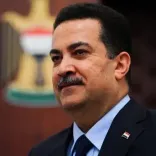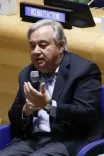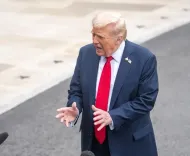Is Congress Justifying Rahul Gandhi's 'Attack on Democracy' Comments?
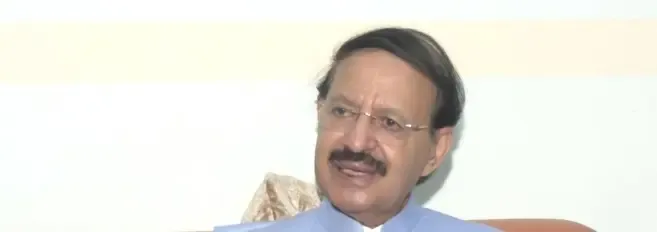
Synopsis
Key Takeaways
- Rahul Gandhi raises concerns about the deterioration of democracy.
- The Congress party defends him, citing examples of suppressed voices and arbitrary arrests.
- Opposition leaders claim that the real threat lies within the Congress Party.
- The debate highlights the complexities of India's current political landscape.
- Public sentiment remains divided on the state of democracy in India.
New Delhi, Oct 3 (NationPress) The Congress party has stepped up to defend the Leader of the Opposition in the Lok Sabha, Rahul Gandhi, after he raised alarms regarding the "attack on democracy" in India, aiming to bring attention to various instances of the nation’s democratic fabric being compromised.
During a discussion at EIA University in Colombia, Rahul Gandhi voiced serious apprehensions about the present state of democracy in India.
He stated: "India encompasses numerous religions, traditions, and languages. A democratic framework is designed to accommodate everyone. Yet, currently, our democratic system is under siege from multiple fronts."
In support of his assertions, senior Congress figure Rashid Alvi commented to IANS: "The essence of our democracy is in decline. Rahul Gandhi does not use such poignant language lightly. For example, the peaceful protests by farmers lasting two years reflect a significant erosion of democracy when their voices were muted. In Pahalgam, innocent individuals face arbitrary arrests and imprisonment. Isn’t that a direct threat to our democratic values?"
"Concerns also arise from the implementation of the Waqf Act in certain contexts. Moreover, the Special Intensive Revision exercise resulted in a staggering deletion of 70 lakh votes. Previously, Rahul Gandhi mentioned that prior to the current government's tenure, there was a sense of pride among the populace in India. What could be deemed a more profound assault on democracy than this? Before targeting Rahul Gandhi, the BJP should confront these pressing issues," he added.
Congress MP Tariq Anwar referenced statements made by Prime Minister Narendra Modi during overseas trips since 2014.
"The Prime Minister remarked that before 2014, Indians did not possess a sense of strength or pride. This implicitly questions the origins of Indian citizens, suggesting a lack of national pride. He further asserted that India experienced no development in the 70 years before his leadership. When a Prime Minister speaks such words abroad regarding his own country, it fosters a perception that undermines both national pride and democracy. Rahul Gandhi’s comments are merely a reflection of these ongoing struggles. In both elections and governance, our democracy and its traditions are facing unprecedented challenges. The government suppresses dissent, and the Prime Minister's 11-year silence towards the media casts a shadow on democratic transparency.
Conversely, Sanjay Nirupam, a leader from the Shiv Sena, provided a sharp counterargument, asserting: "Democracy in India is not under threat; it is the Congress Party that is in jeopardy. Rahul Gandhi’s global warnings about democracy being at risk serve more to safeguard his party's waning prospects than to genuinely reflect the state of our nation's democracy. He misuses the concept of democracy to tarnish India's international image. In reality, democracy in India is flourishing with robust public support. The real crisis lies within the Congress, not within the democratic framework of the nation."

